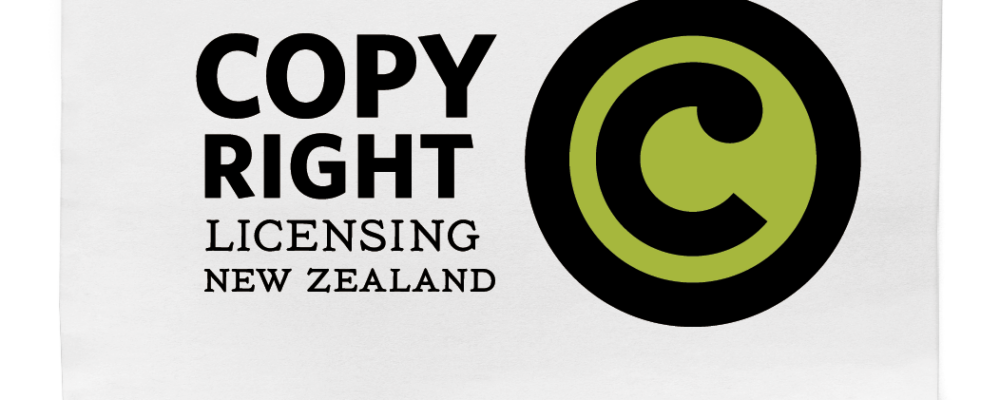Appointment of an Author Director
Copyright Licensing New Zealand
The Position
Copyright Licensing New Zealand (CLNZ) is seeking a member of the New Zealand Society of Authors Te Puni Kaituhi o Aotearoa (PEN NZ) Inc (NZSA) to join its Board of Directors. This appointment process is being undertaken by the Board to find a suitable candidate to replace a current director who has just stepped down. The position is for a 2.5-year term, commencing in July 2025 through to December 2027, and the appointee is eligible for reappointment to a second term. The new appointee will attend their first CLNZ Board meeting in August 2025, having completed an induction process prior to that date. The remuneration for the position will be advised during the appointment process.
The appointee will join a Board comprising 6 Directors, and a Board Intern. Two directors are appointed by the Publishers Association of New Zealand Te Rau o Tākupu (PANZ), two are appointed by NZSA and two are appointed by the CLNZ Board as Independent Directors. Expressions of interest close May 18. All applications to director@nzauthors.org.nz
The Organisation
Copyright Licensing New Zealand (CLNZ) is jointly owned by PANZ and NZSA. The only New Zealand member of the International Federation of Reproduction Rights Organisation (IFFRO), CLNZ is part of a global network that represents the interests of authors and publishers internationally. CLNZ’s tailored licensing solutions allow education organisations, businesses and government departments to copy, scan and share from copyright protected material including books, magazines, journals and periodicals; beyond what is permitted by the Copyright Act 1994. In 2018, CLNZ commenced working with visual artists to deliver licensing solutions for the reproduction of artworks. In 2024, CLNZ established a subsidiary company, Resale Royalties Aotearoa Toi Huarau to administer the Artist Resale Royalties scheme.
CLNZ values inclusion and diversity. As a New Zealand organisation, our aim is to be inclusive of all the diverse people of Aotearoa New Zealand, and to welcome and demonstrate respect, fair treatment and care for the people who work with us and who use the services we offer.
CLNZ is a non-profit limited liability company. A small percentage of revenue is set aside each year in a Cultural Fund and a Legal Reserve Fund. The balance of the net proceeds from licensing schemes is distributed to copyright owners whose material has been copied under licence.
CLNZ also undertakes lobbying with government for effective copyright legislation and takes action on behalf of copyright owners whose rights have been infringed.
The Board’s work is guided by the Board Charter, the CLNZ strategic plan which is available from our website and governance best-practice.
In particular, the Board’s role is:
- Engage in regular strategic thinking discussions, including exploring emerging issues and opportunities.
- To add value to the business by:
- Ensuring positive relationships with stakeholders and shareholders are maintained, and their requirements are met;
- Assessing operating and financial conditions against forecasts;
- Making key decisions in a timely manner
- To support the business to achieve corporate and financial goals, including:
- Advise, support and guide the business to develop strategy and achieve business objectives, including revisiting the company strategy on a regular basis;
- Through Board working group activities, strengthen governance and assist development of strategic business processes;
- Ensure strategy drives performance by directing for change and evaluating the impact of strategic decisions based on performance;
- Manage expense to targets, by monitoring performance against annual plans and budgets;
- Achieve revenue and surplus targets; and
- Be an employer of choice.
- To implement a protocol at Board meetings, which enables an appropriate balance in the agenda between strategic thinking and planning, with business outcomes and identified success criteria.
- To monitor the quality and effectiveness of information presented to the Board, including Board papers, presentations and reports on a regular basis.
- To ensure compliance with the Objects and Powers as outlined in the company’s constitution, including:
- Business direction and performance;
- Financial matters;
- Risk management & compliance including Health & Safety; and
- Corporate governance.
- To monitor the induction and integration of new Directors, and the engagement of all Directors in development and training.
- To document, within engagement letters or otherwise, role and responsibility statements for Directors, Working Group Chairs, CE and the Chair, to be reviewed regularly. This will involve reviewing key performance indicators against which to measure Board performance, including on-going discussion about the role of Directors, expectation of performance and the contribution the Board can make in driving the growth of CLNZ with vision and strategy.
- To invite key senior staff and subject matter experts to Board and Working Group meetings to improve the organisation’s level of engagement with the Board and to provide the Board with current and relevant data to inform discussions and decision-making.
- Review the Board Working Group structure, including:
- The effectiveness of the Chairs;
- Committee membership;
- Frequency of meetings; and
- Reporting mechanisms.
- Safeguard the interests of stakeholders by responsible stewardship of Distributable Funds, the Cultural Fund and the Legal Reserve Fund.
- To approve the risk management strategy, including determining the level of risk that the Company is willing to accept.
Individual Director Objectives
- Participate actively in Board meetings by bringing insight to Board deliberations;
- Demonstrate the required governance expertise for the role and a good grasp of the major risks and issues facing CLNZ;
- Consider alternative views, along with available information and advice;
- Contribute to the overall strategy and direction of CLNZ;
- Maintain regular attendance at Board and applicable Working Group meetings; and
- Contribute to Board cohesion and good working relationships.
Director Candidate Criteria for this Appointment
The Board requires a diverse mix of personal traits, industry experience, and skillsets from its directors that support delivery of the organisation’s strategy. Applicants for this position will be considered against these criteria. It is not expected that any individual director will possess all of the required criteria, and it is recognised that the appointee to this position of Author Director may acquire some of these skills through their membership of the Board.
The competency criteria have been rated as either: Required (must have) or Desirable.
Anticipated Time Commitment
The CLNZ board meets four times a year, typically on a Friday, for about 5-6 hours. One of these meetings is usually online, the other three meetings are in person. Board packs are expected to need about 4-6 hours of reading time. One of these in-person meetings may also be preceded by a half-day strategy session, once a year, There are also occasional online meetings, usually not more than a couple of times a year. Directors also spend a couple of hours on average each month discussing some matters via email correspondence. Some directors are also members of the Audit & Risk Committee, or other Working Groups from time to time.
Director Fees
Author Director fees for 2025 are currently set at $15.497 per year. Any CLNZ board work-related expenses incurred (such as for travel to board meetings) are reimbursed.




